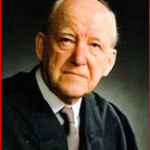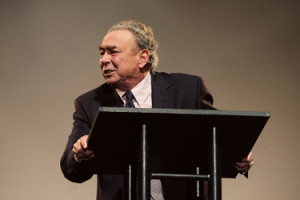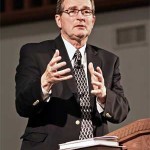 Nathan Busenitz serves on the pastoral staff of Grace Church and teaches theology at The Master’s Seminary in Los Angeles. He a group of Jerry Drace (the evangelist who initiated the meeting) explained that some Baptist pastors are so Calvinistic “that they almost laugh at evangelism. It’s almost to the extent that they believe they don’t have to do it. So [Calvinism] gives them an excuse not to do evangelism.”
Nathan Busenitz serves on the pastoral staff of Grace Church and teaches theology at The Master’s Seminary in Los Angeles. He a group of Jerry Drace (the evangelist who initiated the meeting) explained that some Baptist pastors are so Calvinistic “that they almost laugh at evangelism. It’s almost to the extent that they believe they don’t have to do it. So [Calvinism] gives them an excuse not to do evangelism.”
Drace’s comments raise an important question. Does an affirmation of God’s sovereign election in salvation (commonly called “Calvinism”) discourage people from faithfulness in evangelism?Calvin and Company
An answer to that question could be approached from several different angles.
One could, for example, consider evangelistic efforts among Baptists — comparing those who embrace the doctrine of election with those who do not. An SBC study “found that Calvinistic recent graduates report that they conduct personal evangelism at a slightly higher rate than their non-Calvinistic peers.”
A better place to go, of course, would be the Word of God. There are many passages to which we could turn (from John 6 to Acts 13 to Ephesians 1); but I would start in Romans 9–10. Pardon the anachronism, but it is no accident that one of the most “Calvinistic” chapters in the Bible (Romans 9) is partnered with the one of the most “evangelistic” (Romans 10). Clearly, the apostle Paul saw no disconnect between the reality of God’s sovereignty in salvation and his own evangelistic zeal.
We could also look to church history. As Mitch Cervinka explains:
One needs only examine Protestant history to see that Calvinists have been on the forefront of evangelism and missions. George Whitefield was outspoken in affirming all five points of Calvinism, yet he was one of the most zealous and effective evangelists of the Great Awakening. Wherever he traveled, both in England and America, people would turn out by the thousands to hear him preach in the open fields. The modern missionary movement began in 1792 when the Calvinistic Baptist, William Carey, left England to minister the gospel in India. With the help of William Ward and Joshua Marshman, he founded 26 churches and 126 schools, and translated the Bible into 44 languages including Sanskrit. In 1812, Adoniram Judson, another Calvinistic Baptist, sailed to Burma, becoming the first American to depart for the overseas mission field. . . . Other Calvinistic evangelists and missionaries of note include Jonathan Edwards, Asahel Nettleton and Charles H. Spurgeon. More than this, the Protestant Reformation was perhaps the greatest evangelistic movement of modern history. The Lord brought it about through the evangelistic zeal and unfailing courage of men who believed that God is fully sovereign in salvation—men such as Martin Luther,William Tyndale, John Calvin and John Knox, as well as lesser known men such as William Farel, George Wishart, Martin Bucer, Hugh Latimer, Nicholas Ridley and countless others.
One of my favorite accounts from church history in this regard is the testimony of George Müller. When he first encountered the doctrines of grace (such as mankind’s total depravity and God’s sovereign election), Müller tried to reject them. He would later describe his initial distaste in his autobiography, “Before this period I had been much opposed to the doctrines of election, particular redemption, and final persevering grace; so much so that . . . I called election a devilish doctrine.”
But as he continued to study God’s Word, Müller reached an unexpected conclusion. He wrote:
I went to the Word, reading the New Testament from the beginning, with a particular reference to these truths. To my great astonishment I found that the passages which speak decidedly for election and persevering grace, were about four times as many as those which speak apparently against these truths; and even those few, shortly after, when I had examined and understood them, served to confirm me in the above doctrines.
Müller initially feared that embracing the doctrine of election would quench his passion for evangelism. But he soon found it had the opposite effect. Consequently, he noted:
In the course of time . . . it pleased God then to show to me the doctrines of grace in a way in which I had not seen them before. At first I hated them, “If this were true I could do nothing at all in the conversion of sinners, as all would depend upon God and the working of His Spirit.” But when it pleased God to reveal these truths to me, and my heart was brought to such a state that I could say, “I am not only content simply to be a hammer, an axe, or a saw, in God’s hands; but I shall count it an honor to be taken up and used by Him in any way; and if sinners are converted through my instrumentality, from my inmost soul I will give Him all the glory;” the Lord gave me to see fruit; the Lord gave me to see fruit in abundance; sinners were converted by scores; and ever since God has used me in one way or other in His service.
That perspective fueled Müller’s evangelistic zeal — from the 10,000 orphans he helped to care for in England to the over 200,000 miles he traveled as an itinerant evangelist, taking the gospel to dozens of foreign nations. Müller’s example is one of many powerful answers, from history, to those who would allege that an affirmation of God’s sovereignty in salvation kills evangelism.
Whether we look to Scripture or church history, we quickly learn that a belief in God’s sovereign election — properly understood — is no deterrent to a passionate witness. In reality, it has the opposite effect.
A right understanding actually motivates the missionary spirit. As Charles Spurgeon explained to his students, “We must have the heathen converted; God has myriads of His elect among them, we must go and search for them somehow or other.”
That is the kind of passion for evangelism that ought to characterize all who call themselves “Calvinists.” If it doesn’t, it calls into question the authenticity of the label.






